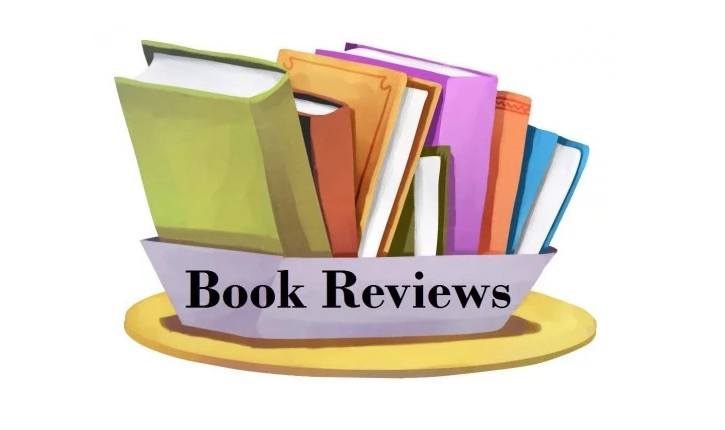
A book review is basically a brief evaluation of a book. Book review is covered in all national newspapers and magazines as a significant literary column. While college students (pursuing courses such as MA) were always expected to do book reviews, schools (such as ICSE Class X) students are also now expected to do book reviews.
The idea is not just to make sure that kids read books, but to ensure they understand the theme and the story clearly and are able to explain it in short.
GET INSTANT HELP FROM EXPERTS!
- Looking for any kind of help on your academic work (essay, assignment, project)?
- Want us to review, proofread or tidy up your work?
- Want a helping hand so that you can focus on the more important tasks?
Hire us as project guide/assistant. Contact us for more information
Most students are just expected to provide 2 to 4 pages of text that highlights the salient features of the book.
Unless the college/school has provided you with a clear structure in which the book review has to be written, you should ideally follow this structure for the book review:
- Introductory paragraph that highlights what the Author is trying to say in the book (the main theme of the book)
- Details where you provide critical comment on the various points covered by the author. This usually spans a few paragraphs and forms the bulk of the review.
- Conclusion paragraph where you sum up things
Some colleges/courses may insist on a more detailed book review, where you will be expected to include things like:
- Bibliographical information
- Background information
- Intended audience
- Subject and thesis statement
- Summary of content
- Critical comments (book reviews)
- Sources on writing book reviews
Reviews can serve a variety of purposes and can have various forms, and they are based on different strategies. A review should be a balanced evaluation of the excellences as well as the limitations of work. The judgment should be well-grounded in the text and reveal balance, judiciousness and maturity. It should be relevant and should be free of any kind of prejudice.
Various Aspects of a Book Review: Introduction to a Book, Relevance of Topic, Critical Appreciation, Quality of Publication
Here are some characteristics of good reviews:
- It should be extensive with a broad and comprehensive survey.
- It should be current, up to date, and state of the art.
- It should be relevant and closely related to and well-focused on the topic you are investigating.
- It should be thorough. An in-depth survey of the major contributions to the body of knowledge under review which identifies the trends, evidence, and conclusions.
- It should be critical. A critical comparison of different approaches which points out any flaws or gaps, inconsistencies in theory and findings, and areas or issues that probably needed further study.
A good literature review is NOT simply a list describing or summarizing several articles; a literature review is a detailed writeup that proceeds to a conclusion by reason or argument. A good literature review shows signs of synthesis and understanding of the topic. There should be strong evidence of analytical thinking shown through the connections you make between the literature being reviewed.
Elements of a Literature Review include clearly defined objectives, background/introduction, methods used for evaluation of the materials, discussion/main body, conclusion/, and bibliography.
There are various types of literature reviews such as Narrative or Traditional literature reviews, Scoping Reviews, Systematic Quantitative Literature Review. Systematic reviews and narrative reviews serve different purposes and should be viewed as complementary.
Conventional systematic reviews address narrowly focused questions: their key contribution is summarizing data. Narrative reviews provide interpretation and critique; their key contribution is deepening understanding.
Review papers tend to include both quantitative (systematic reviews) and narrative or more qualitative components; together, they provide platforms for new conceptual frameworks, reveal inconsistencies in the extant body of research, synthesize diverse results, and generally give other scholars a snapshot of a domain, often written by topic experts.
Book Reviews
- Pegasus by Danielle Steel
- The adventures of Tom Sawyer (Mark Twain)
- 2001: A Space Odyssey by Arthur C Clarke
- Science on the Edge: Artificial Intelligence by Phillip Margulies
- Class and Inequality in God’s without Men by Hari Kunzru
- Leading Change (Jackie Jeffrey, Rebecca Matthews)
- Critical Thinking and Professional Judgement for Social Work
- Sociology: A Very Short Introduction by Steve Bruce
- Revolutions in Development Inquiry Robert Chambers
Q. Describe the characteristics of ‘Reviews’. Explain their types and functions with the help of examples.
StudyMumbai.com is an educational resource for students, parents, and teachers, with special focus on Mumbai. Our staff includes educators with several years of experience. Our mission is to simplify learning and to provide free education. Read more about us.

Leave a Reply
You must be logged in to post a comment.